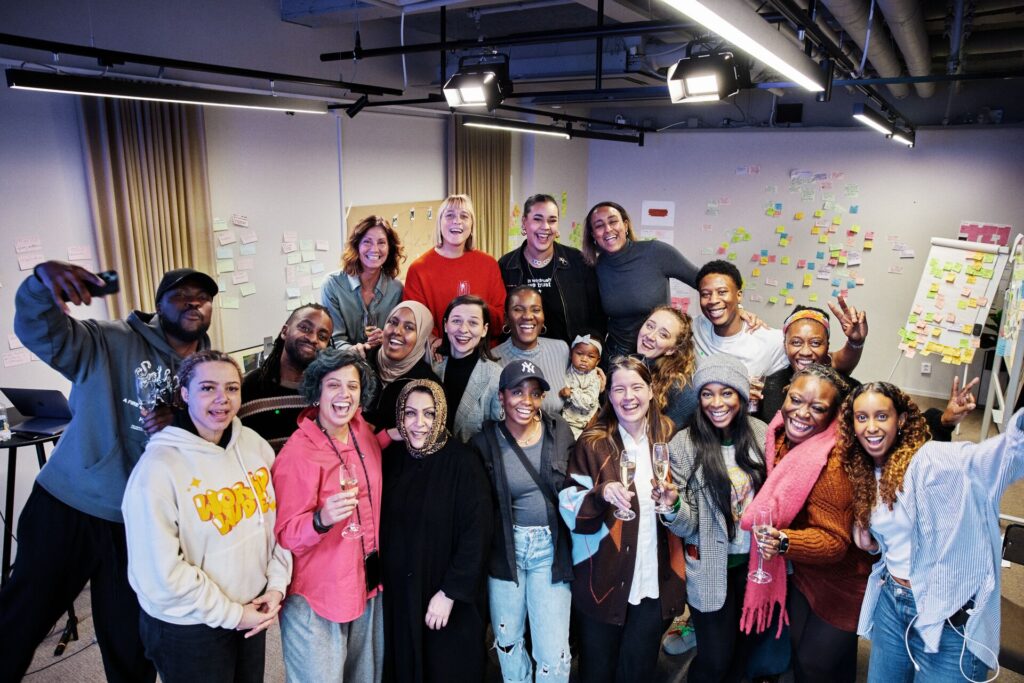Studies show that the fashion industry lacks diversity, and that effective leadership is crucial for fostering inclusivity. Through our pilot project Knit, we wanted to explore new ways to advance a fashion industry that serves, employs, and empowers people representing an extensive range of diverse experiences and backgrounds. “It’s so powerful to experience what we can do when great people come together,” says Sasha Brady, Global HR Manager at fashion brand COS, who was part of the pilot.
So, to amplify diverse voices and expand our perspectives of systemic barriers around DEI (diversity, equity and inclusion) we brought together a group of changemakers for one week with the mission to collaborate closely to develop practical tools that can empower leaders in their everyday work.
The co-creation week was designed and delivered in collaboration with The Do and Creative Equals, and the industry perspective was brought in by the fashion brand COS.
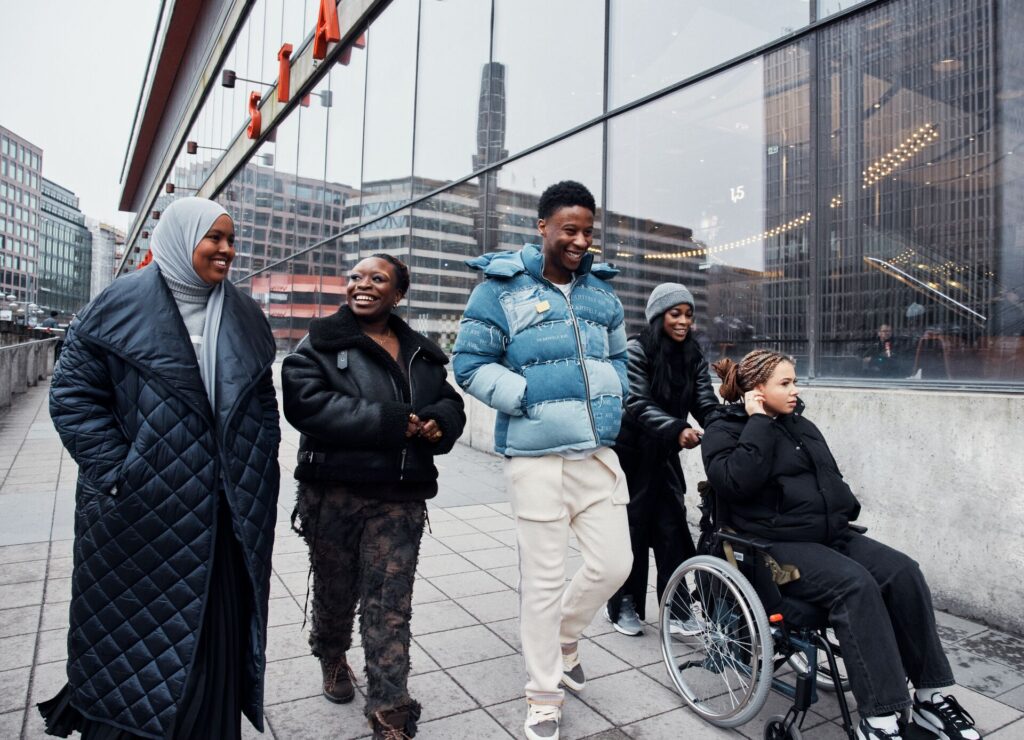
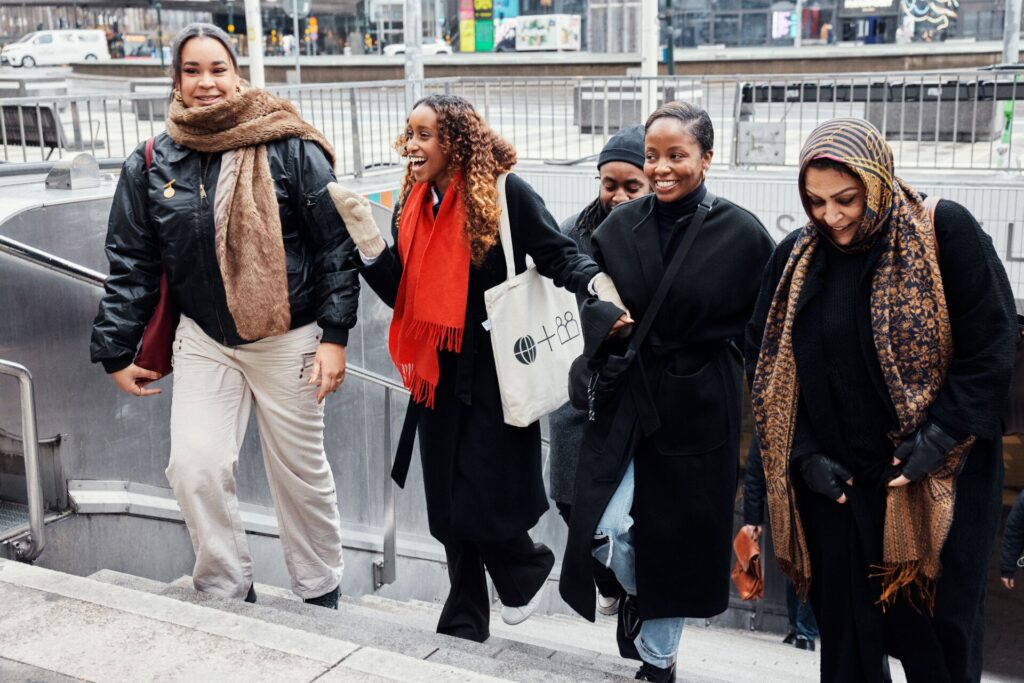
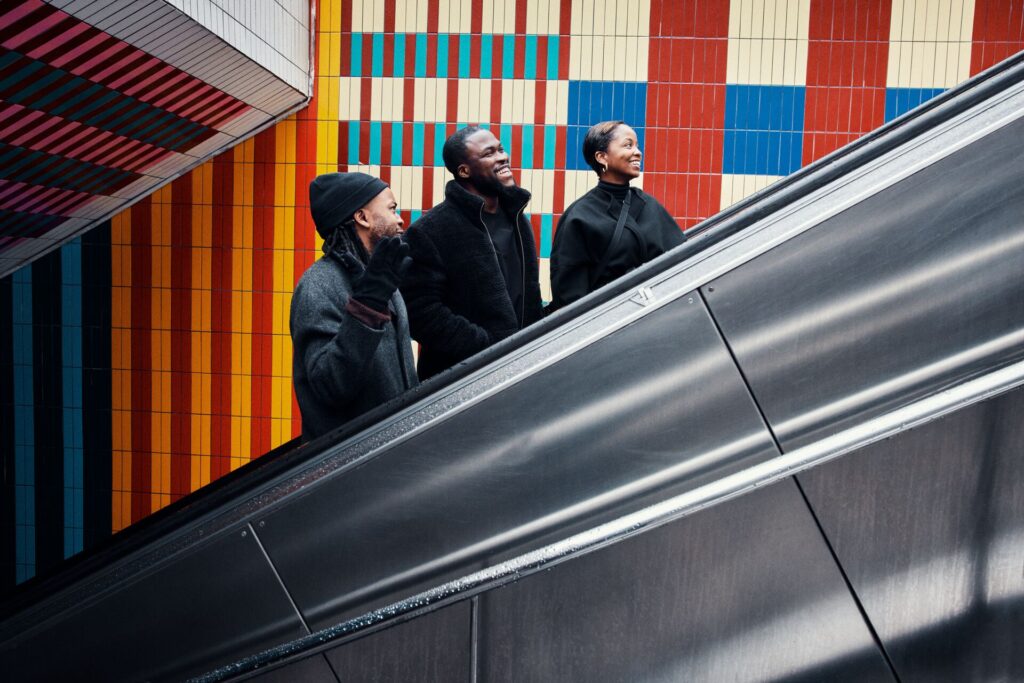
Magical people can make magical things happen
The participants, who started off as strangers on Monday, experienced an innovation journey where our partner The Do guided them through a process of developing user-centric solutions – turning an array of thoughts and insights into prototypes within a few days.
The co-creation week proved to be transformational on a personal level for many of the participants and the solutions created mirrored the fact that on one hand – a structural systemic issue was handled – and on the other hand the participants brought in their unique lived experiences.
“We tried to give that a lot of space because the problem we were attacking also touched us on a personal level, and what we created could potentially have impact on people’s lives. It was important to establish that the participant’s lived experiences were truly invaluable in the process, even when meeting with so-called experts. And the passion, drive, and personal engagement we saw from the Knit participants made this week really special”
Anna Rojan, Programme Lead for Sustainable Innovation at The Do
During the week, the participants got to interview possible users of the tools that they were developing. They met with fashion industry experts, leaders, and talent, who openly shared their personal experiences of the structural problems addressed during the week.
“This has really proven to me that magical people can make magical things happen. It’s been wonderful to see a group of strangers come together to create something that makes them feel proud and something that would have impact. And then to take the brave step of showing it to the world and they’ve said yes – we can see the potential in your idea and in you” says Helen Bazuaye, Associate consultant at Creative Equals.
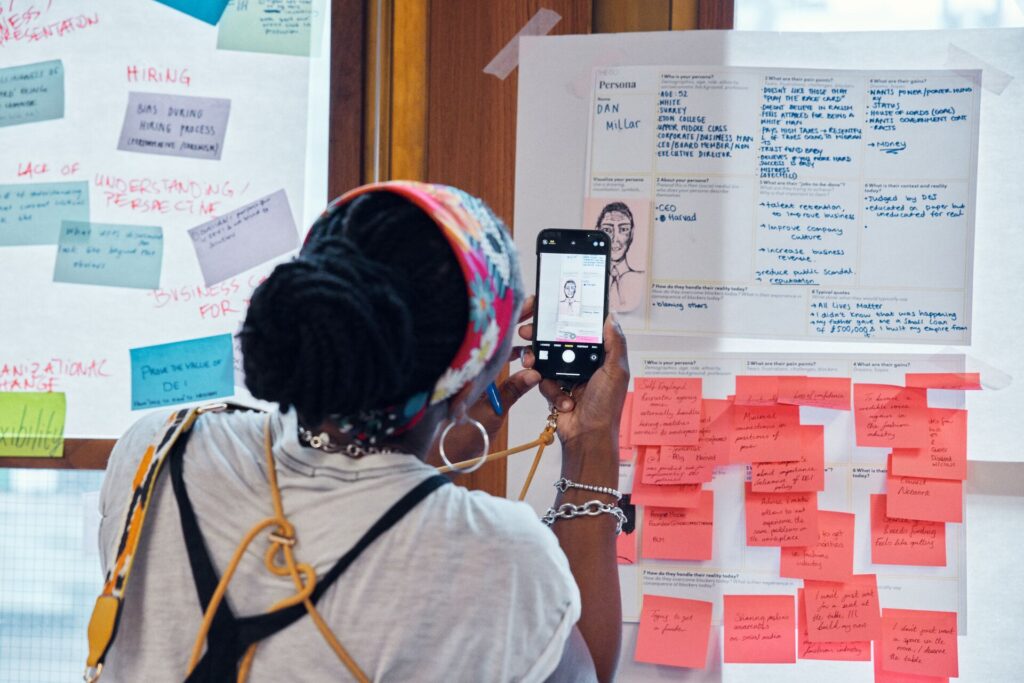
On Tuesday, the participants were also inspired by Thando Hopa, diversity advocate, writer, producer, model and cultural leader at the World Economic Forum. Thando spoke about her project African Fashion Legacy (AFL), a concept that explores the history of African fabrics and how they are historical and transcontinental documents about multiple nations. She was also reminding each person in the room about the agency we all have to make change.
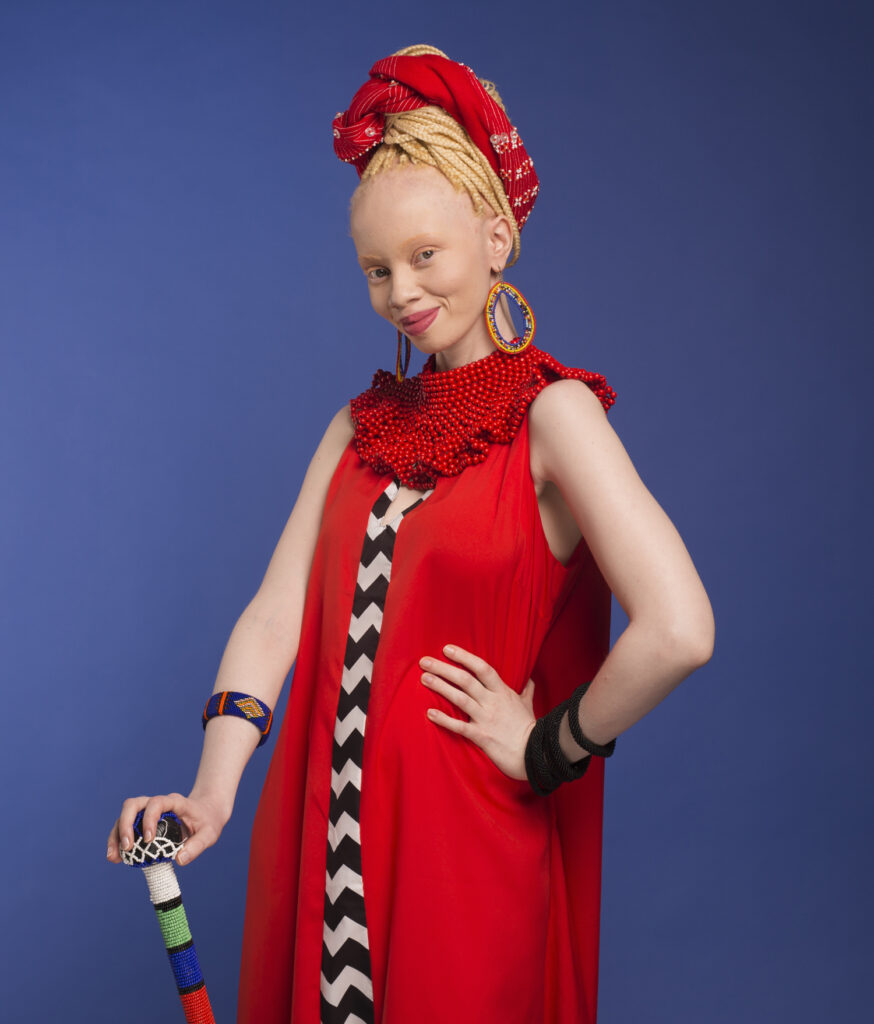
“My personal experiences and values are deeply integral with every project I engage in. Whatever experience I had that caused me pain or discomfort, I use culture to repair what I feel was wounded. And in any decision that we make, we can redirect resources towards building upon African culture and fashion. Dress in African fashion, do African hairstyles. These are ways of regularising our representation even in our personal spaces” says Thando Hopa.
From post-its to prototypes
Through workshops, discussions, and hands-on activities, the participants were deep diving into the complexity of inclusivity, understanding systemic barriers and exploring ways forward. By Friday, they were ready to pitch their solutions on stage and showcase their prototypes, created with the help from UX/UI designers from CC Projects.
The aim was to present concrete tools that could empower leaders within the fashion industry to increase inclusivity of people from different backgrounds, specifically looking at ethnicity and socioeconomic class.
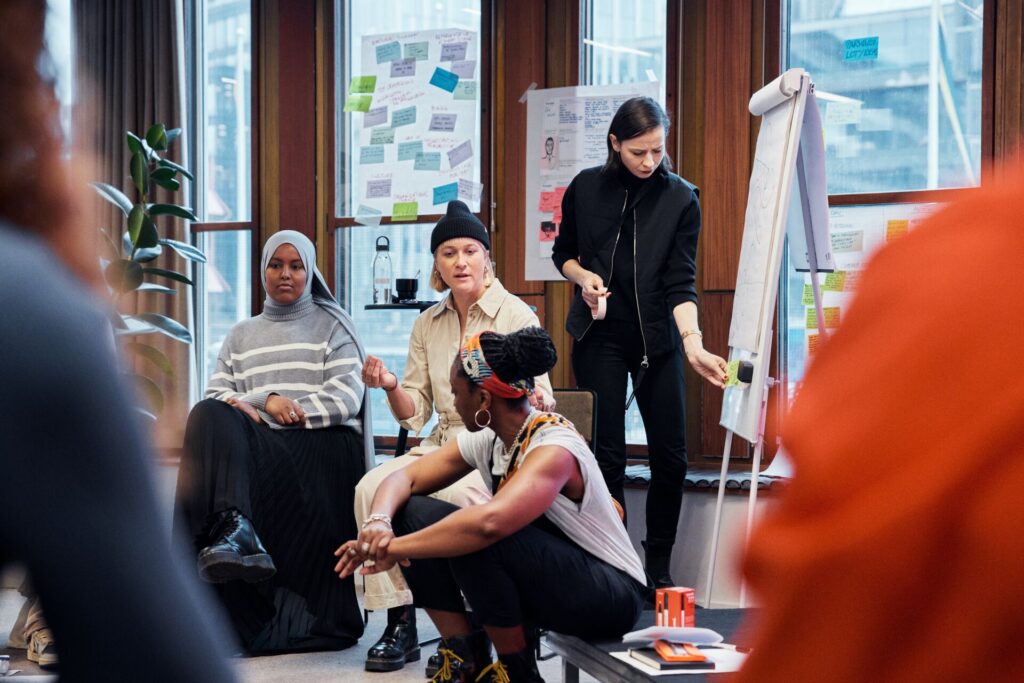
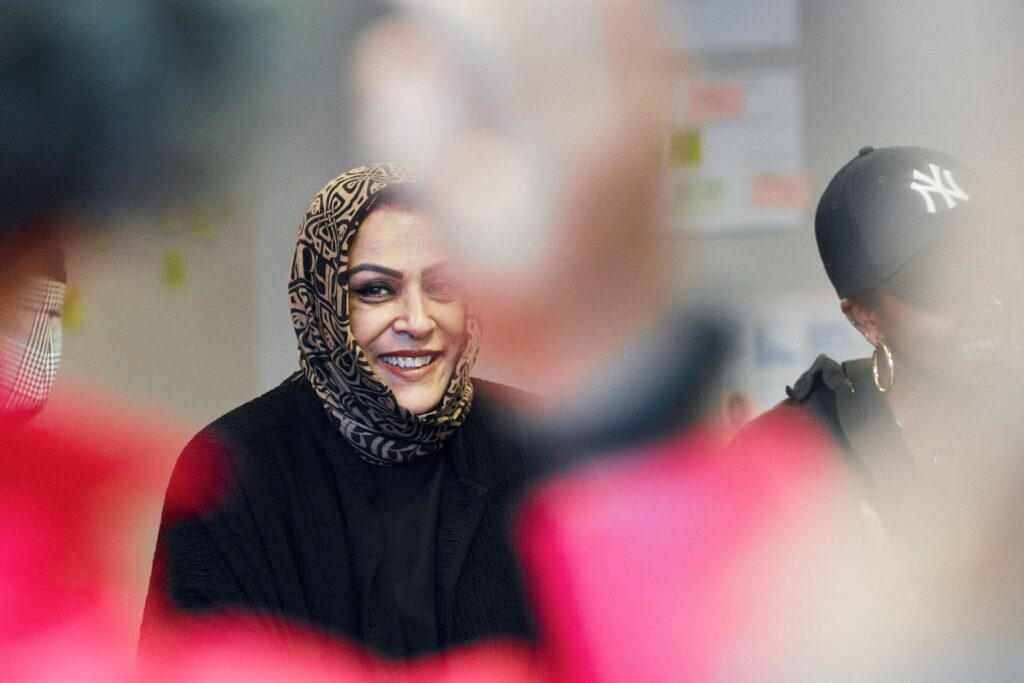
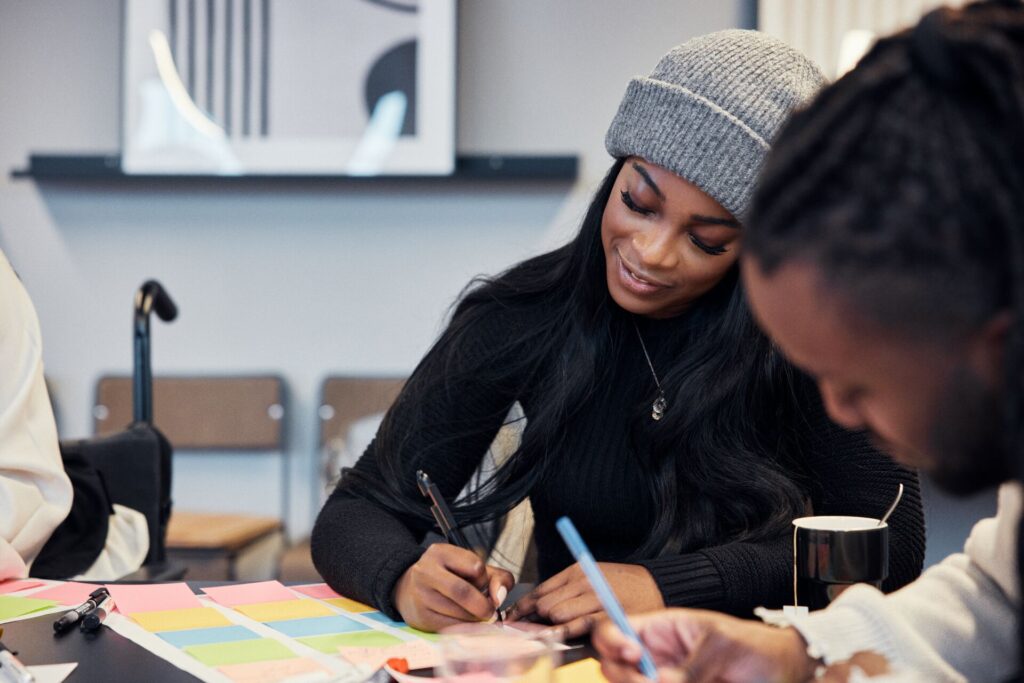
The two tools: Step into my Shoes and Humanitree
Step into My Shoes
Step into My Shoes addresses the lack of diversity on all levels in the fashion industry, especially in upper management and boards, and aims to increase understanding and empathy, leading to behavior change.
This solution is built around an immersive experience that puts you in someone else’s shoes during a recruitment process. It allows you to feel and experience the effects of bias firsthand, and the scenarios are based on true stories and lived experiences from people with diverse backgrounds. It is a learning tool to be shared within teams, paired with facilitated discussions and reflections.
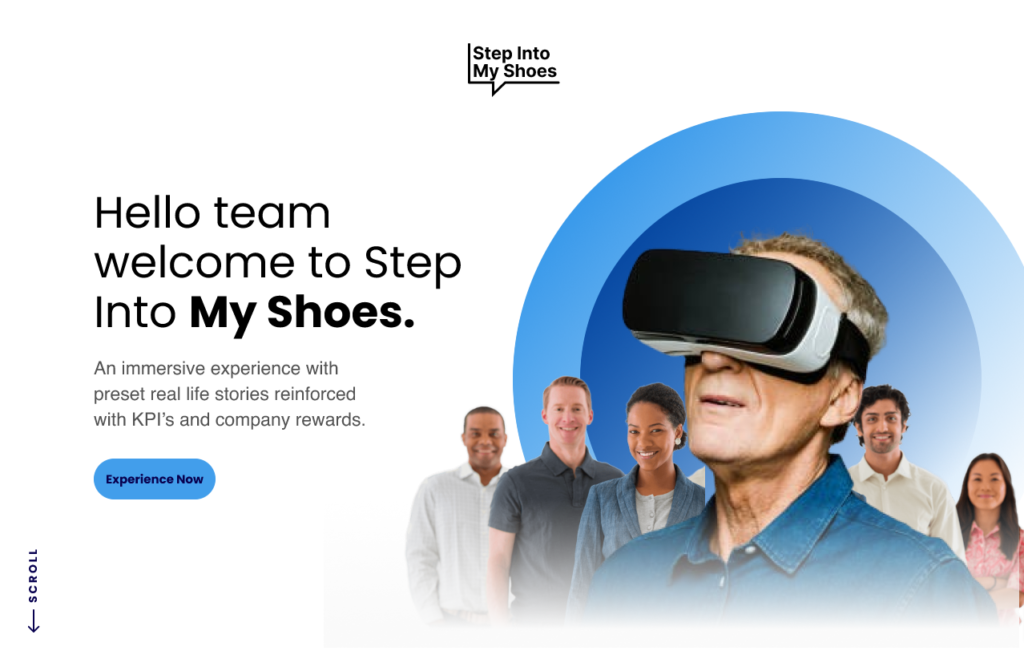

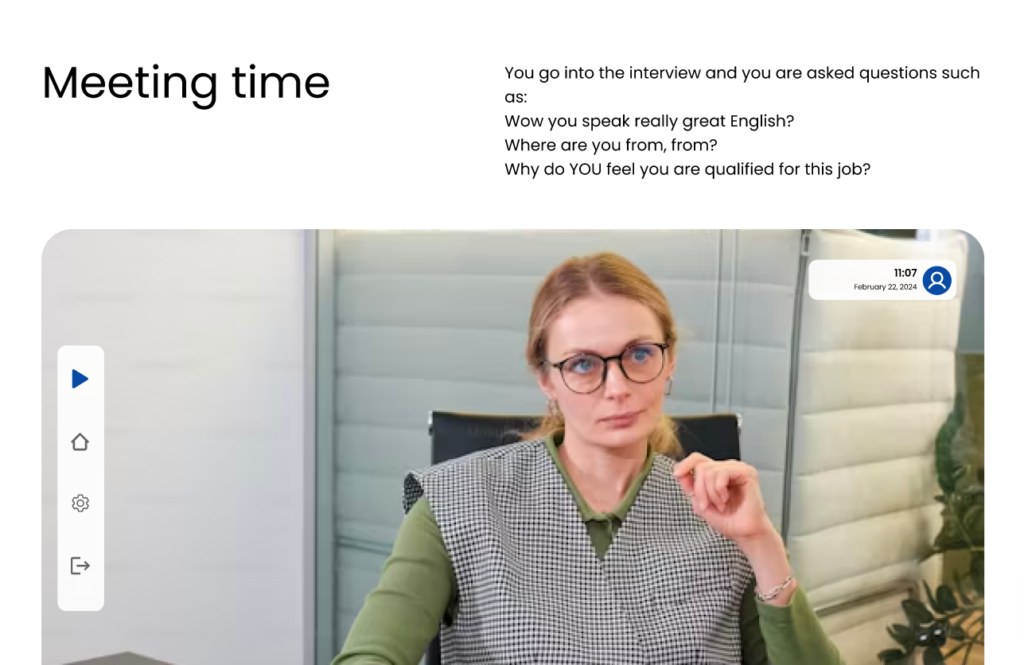
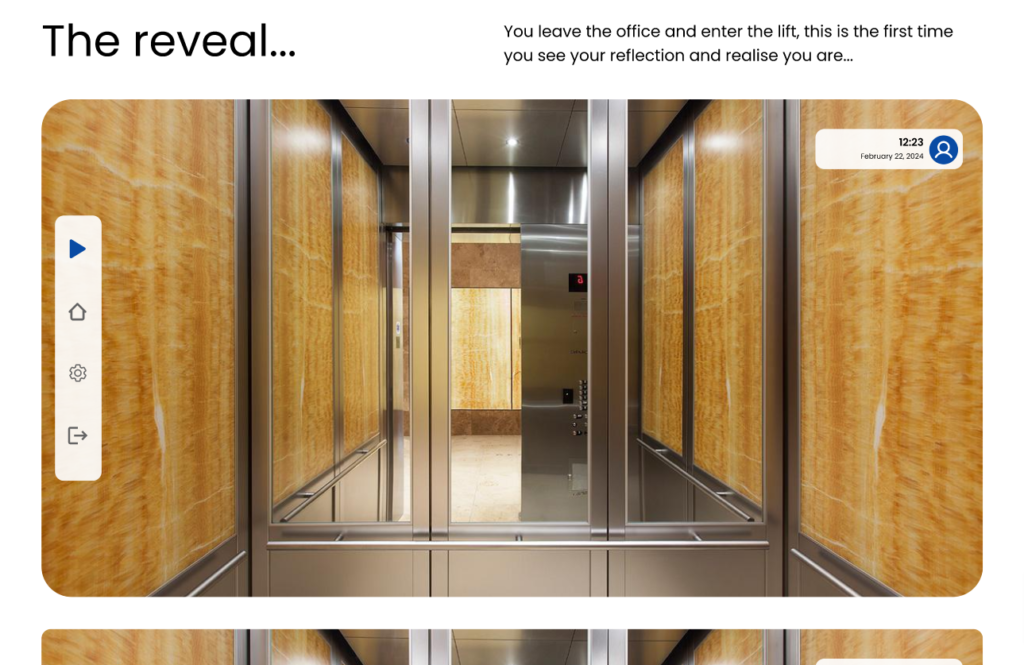
This is a solution created by:
John Akanmu, Creative/Movement Director
Paulo Saka, Senior Podcast Editor
Golda Kesse, UX/Cultural Researcher and Strategist
William Rook, Creative Director, Video Creative
Suwayda Abdi, Design and Brand Development Manager
Judah Maffia, Textile designer, DJ, Creative
Get in contact with the team by emailing [email protected].
“What we came back to in all our conversations leading up to our solution was the lack of understanding, which leads to bias. So, if we could approach that, there could be a trickledown effect, also touching upon company culture, staff retention, diversity in workspaces, and giving minority communities an opportunity to be represented in the fashion industry”
Suwayda Abdi, Design and Brand Development Manager and Knit participant.
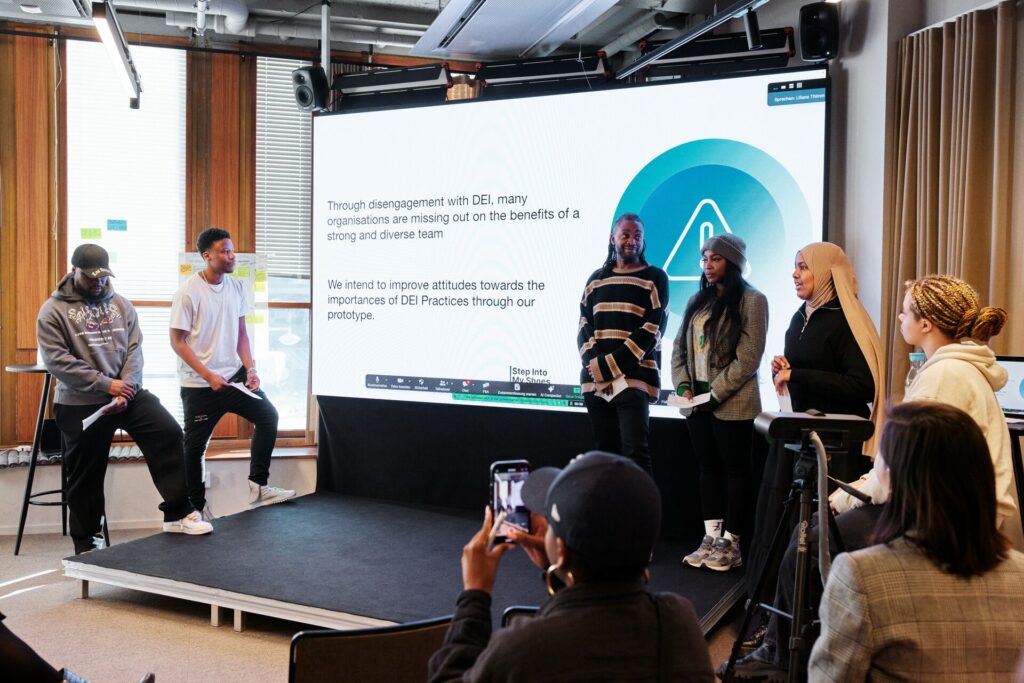
Humanitree
Humanitree addresses the fact that companies with poor diversity and inclusion practices experience a higher staff turnover rate compared to those with inclusive cultures, and that there is a lack of ethnic minorities in leadership roles.
The solution presents a transparent way to showcase your company’s culture by visualizing real, dynamic data in the form of a tree. The health status of your tree is dependent on real data like employee surveys, industry benchmarks and company data on leadership representation and translates that into a vivid visualization that aims to spark conversations and drive positive change.
Download pitch deck.
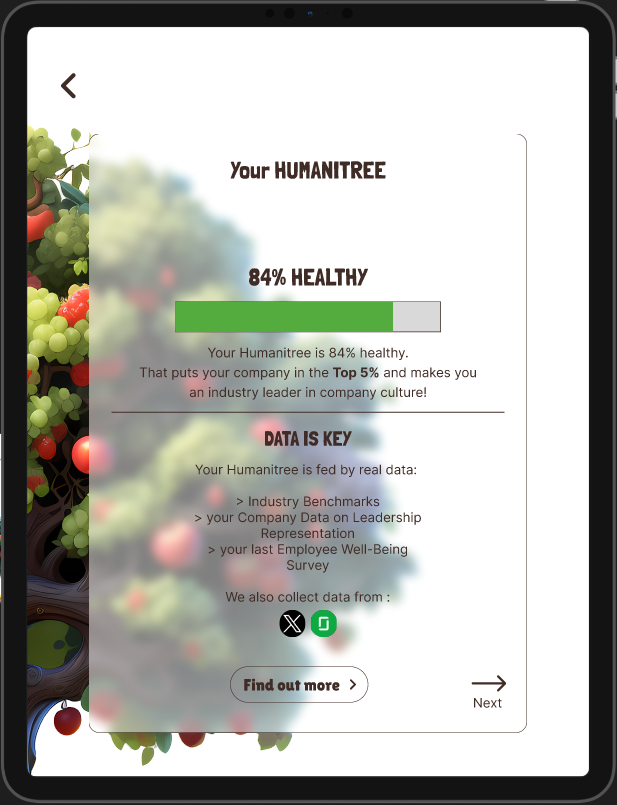
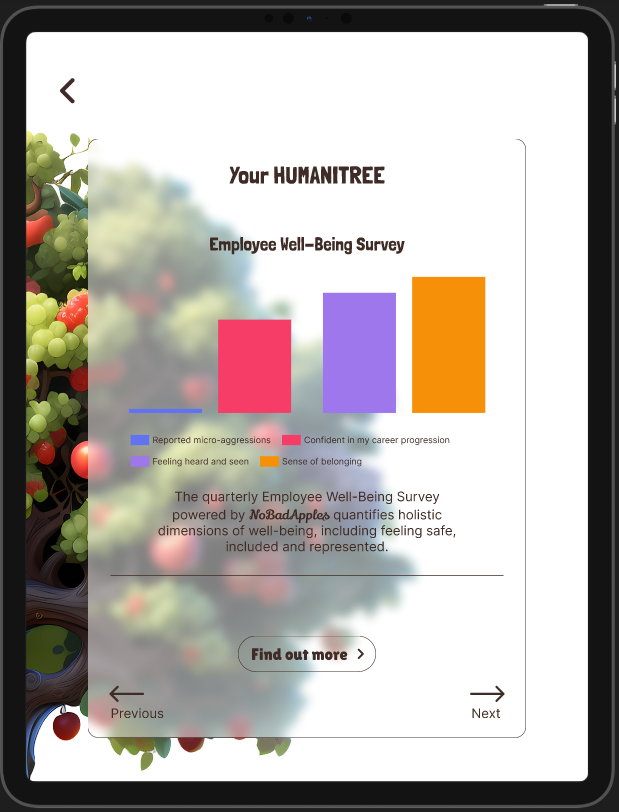
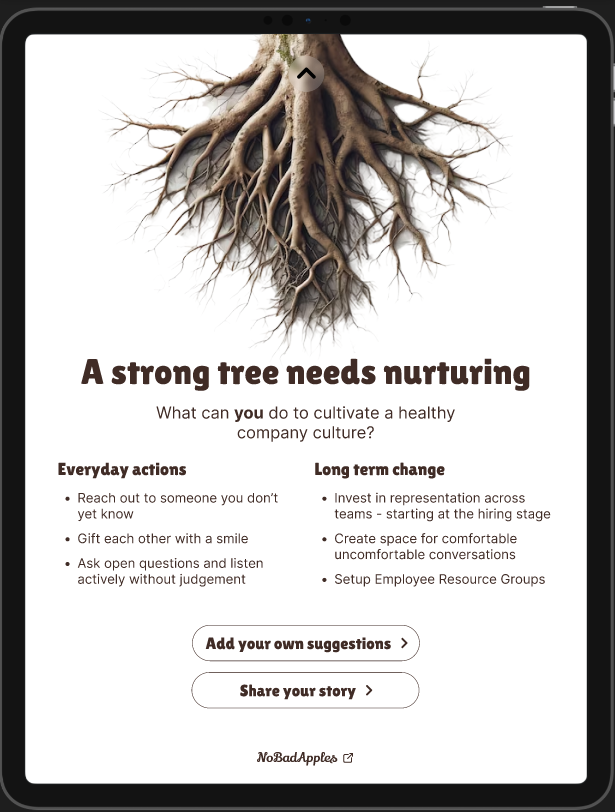
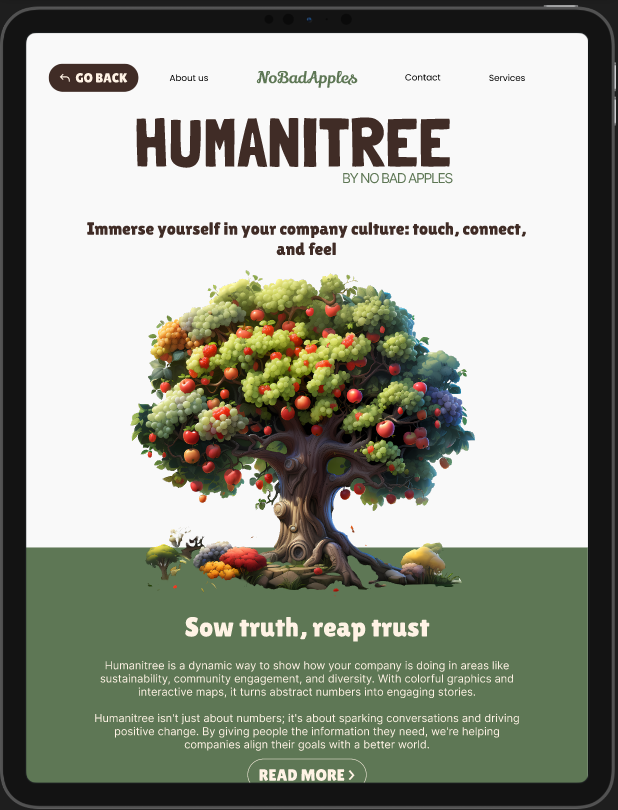
This is a solution created by:
Sabine Matsheka, Communications Specialist and Fashion Entrepreneur
Samia Tirike, Final Year Student @ UAL and Creative Technologist
Bushra Ahmed, Non-Executive Board Director and Community Strategist
Stephanie Daley, Menswear Fashion Design Student and Assistant Stylist
Tolu Elufowoju, Creative Consultant & Photographer
Anna Rojan, Program Lead Sustainable Innovation
Get in contact with the team by emailing [email protected].
“I hope that these solutions get a chance to grow and we are really energized to see how we can take this further. It’s inspiring to see what we created in only a few days and I have a lot of energy to see where we can take this.”
Sabine Matsheka, Communications Specialist and Fashion Entrepreneur
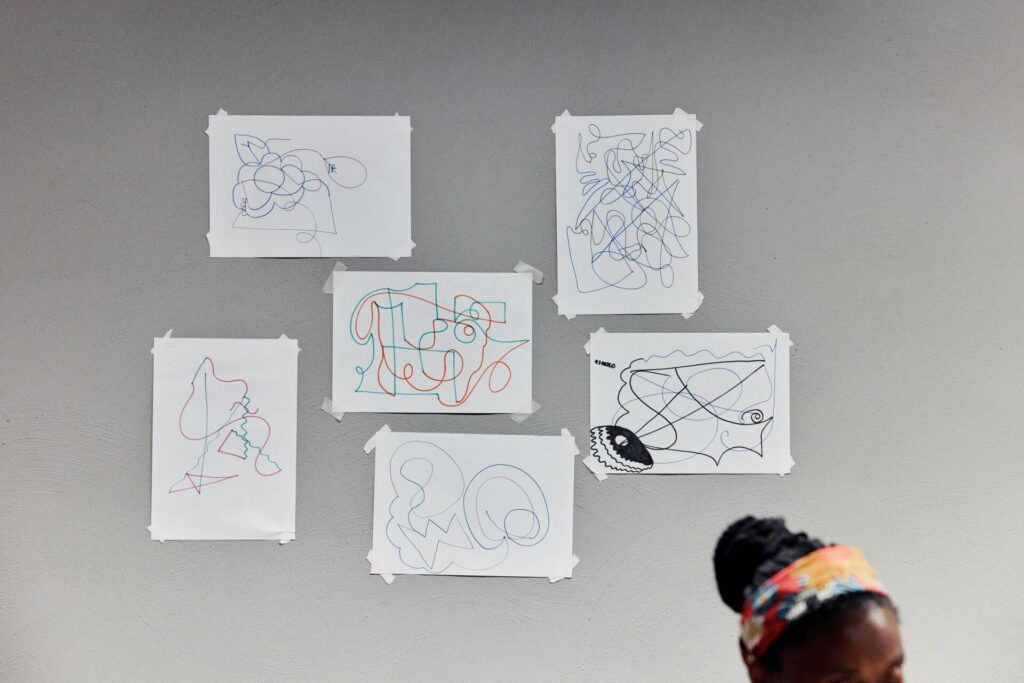
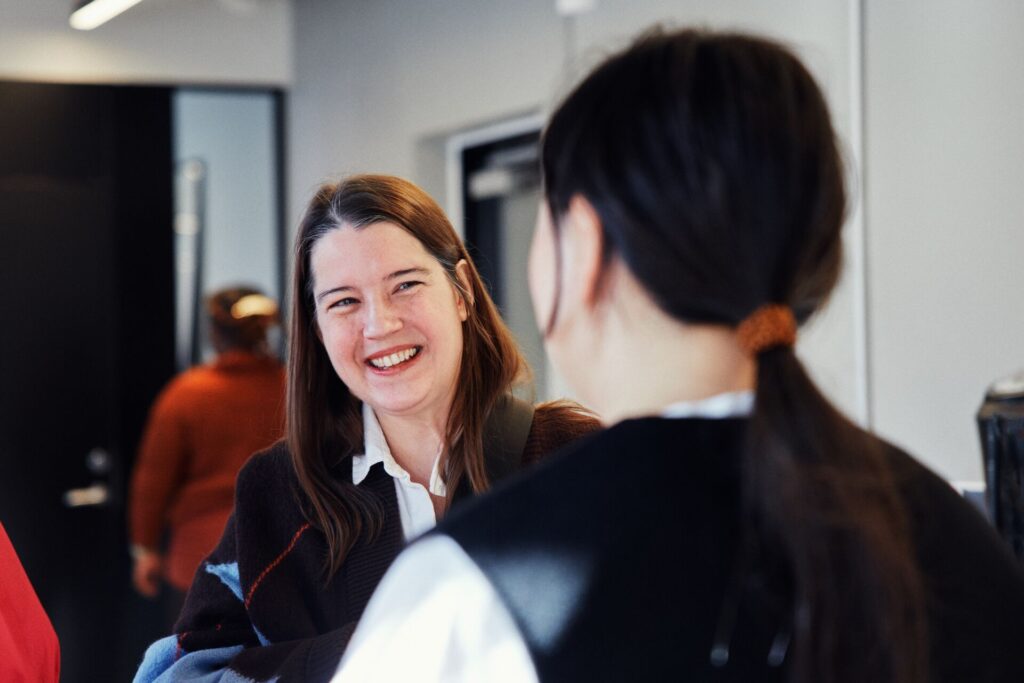
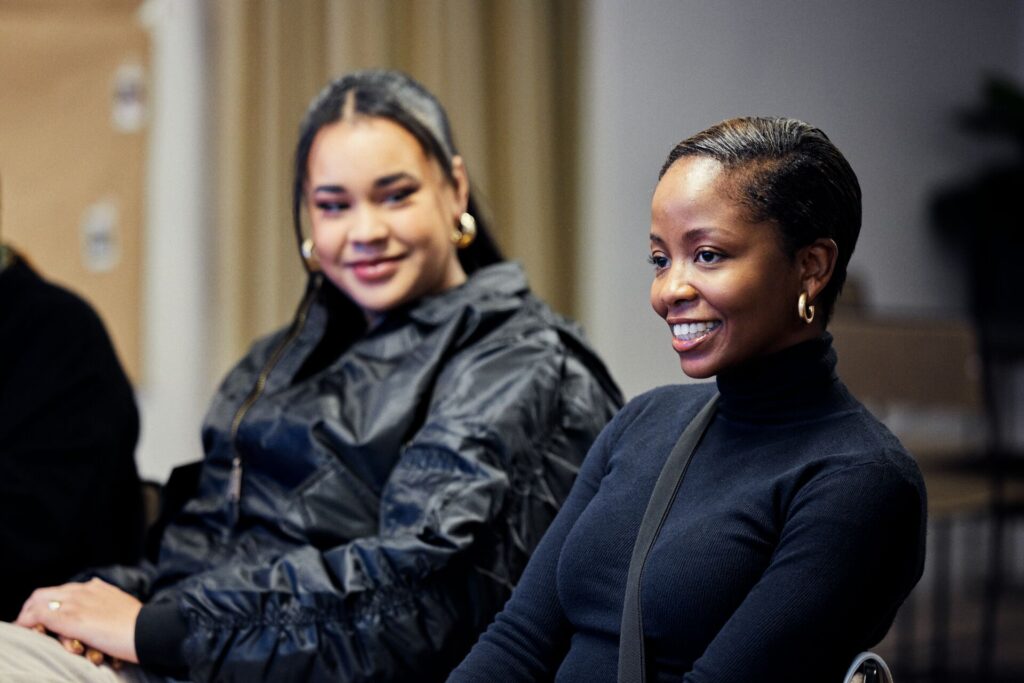
“It’s been an absolute honour to be here and it’s so powerful to experience what we can do when great people come together. We are on a super important journey and at every single stop we need to bring newness, new ideas, new approaches and new ways of working and connect as a bigger community to improve things for each other.”
Sasha Brady, COS Global HR Manager Design, Buying and Production and Inclusion and Diversity Lead
A call out to the industry
While Knit is small-scale pilot project, we hope to inspire new ways of how to amplify diverse voices and perspectives in the fashion industry and showcase ways to create a more inclusive environment where underrepresented talents thrive and want to stay.
The solutions created are available for the entire industry – and hopefully beyond. No stakeholder will profit; anyone is welcome to take away and apply the tools; and any organization may adopt them. By making the solutions available to all, the aim is to spread awareness around the topic and influence multiple stakeholders in the industry.
“I’m so proud, emotional, and full in admiration of the group of participants, it has been amazing to see them grow. And by bringing people with different experiences together, including underrepresented talents, we’ve pushed the boundaries for innovation and creativity. We hope that industry stakeholders seize this opportunity to further the conversation, form connections and collaborate with our participants to amplify their insights and accelerate their solutions.”
Jodit Tesfai, Strategy Lead at the H&M Foundation.
The next step for Knit is to go through a thorough evaluation with everyone involved, to identify learnings that we can use in our own work going forward, and also share with others. We hope to be able to provide the industry with inspiration on how to work with DEI through an innovative process, also bringing together experts and people with lived experiences to gain new perspectives. We want to support the industry to advance from diversity strategies and tick box activities into concrete actions.
